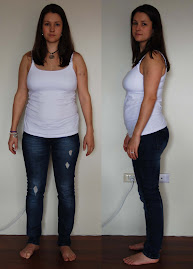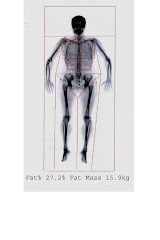Now that many of us have started tracking our calorie intake on Foodlog I want to reiterate on a very important point that Jen made in our ‘Nutritional Guidelines’ and that is the misconception that “a calorie is just a calorie”.
When it comes to keeping track of our food intake we often get fixated on the calories and forget about the quality of the foods we choose to eat.
As Jen mentioned, a widely accepted concept in mainstream nutrition is that weight loss or weight gain is strictly a matter of calories in versus calories out. If you "burn" more calories than you take in, you will lose weight and if you eat more calories than you burn off each day, you will gain weight. In other words, “a calorie is a calorie” whether it comes from protein, fat or carbohydrates.
We now understand, however, that not all calories are created equal and that calories from certain foods (such as fat and protein) can evoke entirely different physiological responses than others (such as carbohydrates).
A study featured in the International Journal of Obesity, for example, found that people who consumed eggs rather that bagels for breakfast felt more satisfied and ate fewer calories at the following meal. Also, compared to the subjects who ate a bagel breakfast, men and women who ate eggs lost more weight and reported higher energy levels, this despite the fact that the egg and bagel breakfasts provided exactly the same amount of calories!
So which calories are more likely to make you gain weight? Surprisingly it is not necessarily the calories from so called ‘evil’ saturated fats but the calories from grains and fructose that are the real problem.
More on this later!
Marieke Rodenstein
Dietitian & Nutritionist
The Nutrition Practice
0450 458 549
marieke@thenutritionpractice.com.au
www.thenutritionpractice.com.au
To read a little more on this very important topic you can also check out a past blog post of mine from back in 2008 - click here
When it comes to keeping track of our food intake we often get fixated on the calories and forget about the quality of the foods we choose to eat.
As Jen mentioned, a widely accepted concept in mainstream nutrition is that weight loss or weight gain is strictly a matter of calories in versus calories out. If you "burn" more calories than you take in, you will lose weight and if you eat more calories than you burn off each day, you will gain weight. In other words, “a calorie is a calorie” whether it comes from protein, fat or carbohydrates.
We now understand, however, that not all calories are created equal and that calories from certain foods (such as fat and protein) can evoke entirely different physiological responses than others (such as carbohydrates).
A study featured in the International Journal of Obesity, for example, found that people who consumed eggs rather that bagels for breakfast felt more satisfied and ate fewer calories at the following meal. Also, compared to the subjects who ate a bagel breakfast, men and women who ate eggs lost more weight and reported higher energy levels, this despite the fact that the egg and bagel breakfasts provided exactly the same amount of calories!
So which calories are more likely to make you gain weight? Surprisingly it is not necessarily the calories from so called ‘evil’ saturated fats but the calories from grains and fructose that are the real problem.
Marieke Rodenstein
Dietitian & Nutritionist
The Nutrition Practice
0450 458 549
marieke@thenutritionpractice.com.au
www.thenutritionpractice.com.au
To read a little more on this very important topic you can also check out a past blog post of mine from back in 2008 - click here

























No comments:
Post a Comment